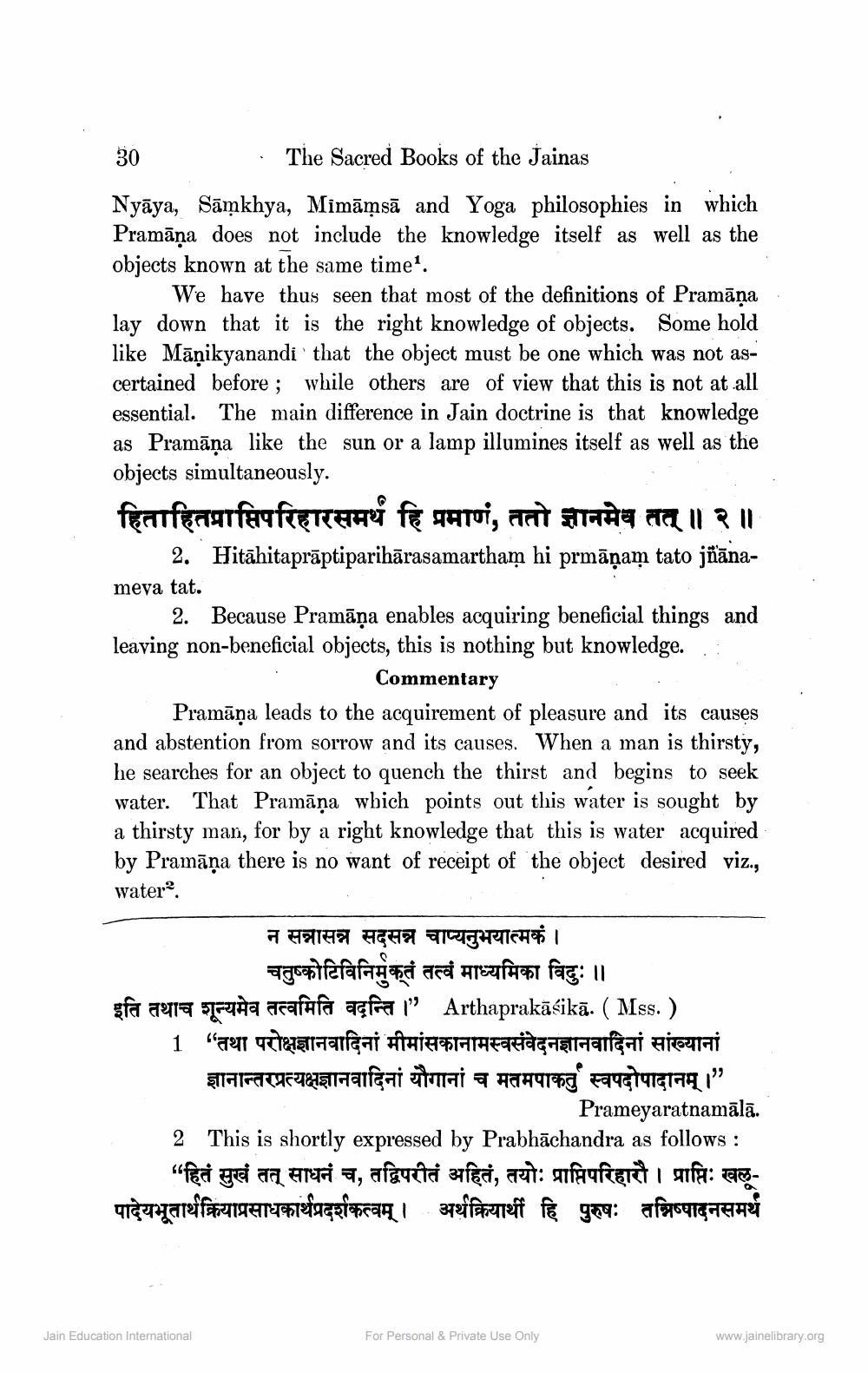________________
30
The Sacred Books of the Jainas
Nyaya, Samkhya, Mimāmsā and Yoga philosophies in which Pramāņa does not include the knowledge itself as well as the objects known at the same time1.
We have thus seen that most of the definitions of Pramāņa lay down that it is the right knowledge of objects. Some hold like Manikyanandi that the object must be one which was not ascertained before; while others are of view that this is not at all essential. The main difference in Jain doctrine is that knowledge as Pramāņa like the sun or a lamp illumines itself as well as the objects simultaneously. हिताहितप्राप्तिपरिहारसमर्थं हि प्रमाणं, ततो ज्ञानमेव तत् ॥ २ ॥
2. Hitahitaprāptipariharasamartham hi prmāņam tato jñāna
meva tat.
2. Because Pramāņa enables acquiring beneficial things and leaving non-beneficial objects, this is nothing but knowledge. Commentary
Pramāņa leads to the acquirement of pleasure and its causes and abstention from sorrow and its causes. When a man is thirsty, he searches for an object to quench the thirst and begins to seek water. That Pramāņa which points out this water is sought by a thirsty man, for by a right knowledge that this is water acquired by Pramāņa there is no want of receipt of the object desired viz., water.
न सन्नासन्न सदसन्न चाप्यनुभयात्मकं । चतुष्कोटिविनिर्मुक्तं तत्वं माध्यमिका विदुः ।।
gfa au1a geuùa acaffa afa" Arthaprakāśikā. ( Mss. ) 1 " तथा परोक्षज्ञानवादिनां मीमांसकानामस्वसंवेदनज्ञानवादिनां सांख्यानां ज्ञानान्तरप्रत्यक्षज्ञानवादिनां यौगानां च मतमपाकर्तुं स्वपदोपादानम् ।" Prameyaratnamālā.
2 This is shortly expressed by Prabhachandra as follows: "हितं सुखं तत् साधनं च तद्विपरीतं अहितं, तयोः प्राप्तिपरिहारौ । प्राप्तिः खलूपादेयभूतार्थक्रियाप्रसाधकार्थप्रदर्शकत्वम् । अर्थक्रियार्थी हि पुरुषः तन्निष्पादनसमर्थं
Jain Education International
For Personal & Private Use Only
www.jainelibrary.org




